What AI Companies Can Learn from Anthropic’s $1.5 Billion Proposed Class Action Settlement . . . and the Judge’s Preliminary Rejection of It
September 18, 2025
By: Benjamin Silvers and Mary Lou Wakimura
On September 8, 2025, U.S. District Judge William Alsup said he was “disappointed” in the proposed settlement of a class action lawsuit seeking compensation for Anthropic’s unauthorized use of at least 500,000 copyrighted books. Judge Alsup cited incomplete terms regarding the exact scope of unauthorized use, the list of affected authors, the notification process for members of the class, and the claim form for class member compensation.
In a previous ruling, Judge Alsup found that Anthropic’s use of the books at issue, whether properly acquired or pirated, to train Claude, its AI model, was “exceedingly transformative and . . . fair use under Section 107 of the Copyright Act.” However, he found that Anthropic’s downloading of books from pirate websites to create a permanent central library created a potential copyright infringement claim that was not subject to the fair use defense. The proposed settlement was designed to resolve the claims regarding pirated copies.
While Judge Alsup’s rejection of the proposed settlement was mostly procedural and sought clarification, the settlement terms reveal significant insights about the perceived value of creative works and the power dynamics between corporations like Anthropic and individual authors.
Settlement Amount
At $1.5 billion for 500,000 works, the unauthorized use of each book is compensated at $3,000 in the proposed settlement. Under the Copyright Act, statutory damages range from $750 to $30,000, with damages for willful infringement reaching as high as $150,000. By settling, the authors may be foregoing up to the additional $147,000 ($150,000 - $3,000) per work, or $73.5 billion total. Judge Alsup expressed concerns that in many class actions, class members “get the shaft,” and this proposed settlement amount may validate his concerns.
Implications for AI Companies
This proposed settlement suggests that Anthropic does not see a viable path to a fair use argument for the pirated copies at trial, which sends a clear signal to other AI companies: to acquire works for training models legally or face consequences. While pirating works is more efficient and cost effective, it subjects companies to potentially massive damages because the fair use defense is unavailable.
Lessons for Future Settlements
Judge Alsup’s rejection of the proposed settlement shows that companies seeking to settle massive class action claims must thoroughly consider the details before submitting a settlement for approval. Beyond monetary considerations, courts scrutinize many other terms contained in the settlement. Prior to submitting a settlement, parties to a class action lawsuit should agree on the scope of compensation, the notification process for compensation, and the mechanism by which class members will receive payment.
Looking Forward
This lawsuit involves 500,000 works – a very small subset of the total works ingested by AI training models. As a result, other AI companies and Anthropic itself will likely face many more similar lawsuits. If this settlement is approved, however, it will establish one viable valuation of copyrighted works that may be used in future settlements or cited in future litigation.





